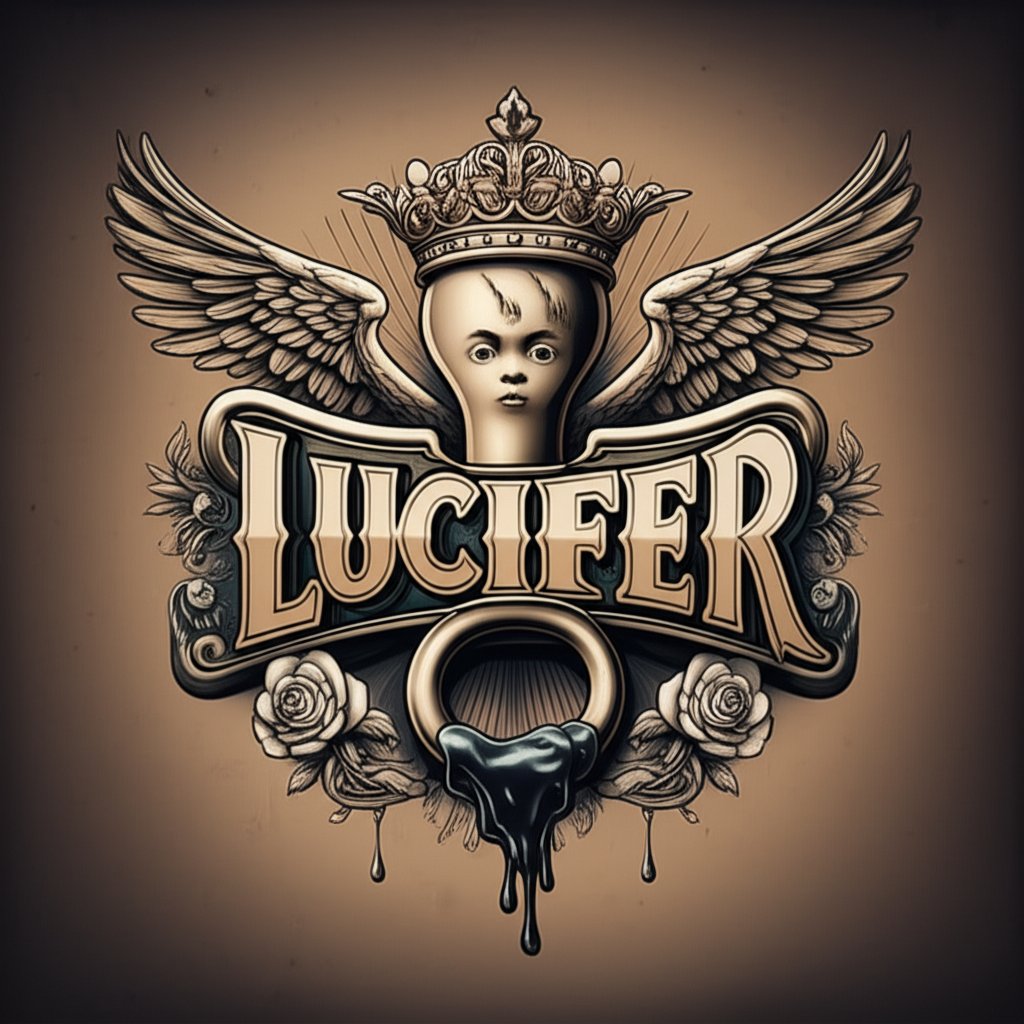Are you drawn to the mysterious and unconventional? Do you want a name that whispers of power, intrigue, and perhaps just a touch of mischief? Then you might be among those fascinated by evil baby names. These aren’t necessarily names that condemn your child to a life of villainy, but rather monikers with dark, edgy roots from mythology, folklore, and even literature.
At a glance:
- Uniqueness: Evil baby names offer a distinctive alternative to mainstream choices.
- Powerful Meanings: Many names have historical or mythological significance, conveying strength and mystery.
- Edgy Appeal: Perfect for parents seeking a name that stands out and challenges convention.
- Literary and Historical Connections: Explore names inspired by demons, deities, and anti-heroes.
- Balanced Approach: Consider the potential impact of a darker name and choose one that resonates with your values.
Why Choose an “Evil” Name?
Let’s be clear: nobody actually wants their child to be evil. The appeal of these names lies in their alluring darkness and the stories they tell. They offer a way to embrace the unconventional, celebrate powerful figures (even if they’re villains!), and bestow a unique identity upon your child. For some, they represent a rejection of saccharine sweetness in favor of something more complex and intriguing. Plus, sometimes finding Strong and Fierce Names just means considering all of the options, even the unexpected ones.
Diving into the Darkness: Names and Their Meanings

Ready to explore the shadowy realm of evil baby names? Here’s a curated list, categorized for easier browsing, along with their meanings and backstories:
Demons and Hellish Figures
- Abaddon: (Hebrew) Meaning “ruin” or “destruction.” In the New Testament, Abaddon is the Angel of the Abyss.
- Ahriman: (Persian) Meaning “evil spirit.” The Lord of Darkness and Chaos in early Iranian religion.
- Amon: (Greek) Meaning “the hidden one.” A Marquis of Hell in the Lesser Key of Solomon, commanding forty legions of demons.
- Andras: (Welsh/Greek) Meaning “manly, masculine.” In demonology, Andras is the “Author of Discord” who appears riding a black wolf.
- Azazel: (Hebrew) Meaning “scapegoat.” In the Bible, a desolate place to which a goat bearing sin is sent.
- Balam: (Semitic) Meaning “possessor.” A powerful Prince of Hell with the ability to see past, present, and future.
- Belial: (Hebrew) Meaning “worthless.” Became another name for the devil in Christian tradition.
- Buer: (Germanic) Meaning “temporary dwelling.” A Great President of Hell who commands 50 legions of demons and bestows familiars.
- Eligor: (Hebrew) Meaning “unwilling.” A Great Duke of Hell who rides a skeletal horse and sells victory secrets.
- Forneus: (Latin) Meaning “oven.” Often depicted as a sea monster and demon.
- Leviathan: (Hebrew) Meaning “twisted in folds.” An image of Satan in early Christian symbolism and one of the Seven Princes of Hell.
- Lucifer: (Latin) Meaning “bringing light.” Initially referred to Venus, the morning star, but later associated with Satan’s fall.
- Zagan: A fallen angel, was a servant of Lucifer in demonology.
Mythological Monsters and Underworld Figures
- Acheron: (Latin) Meaning “river of sorrow.” One of the rivers in the Greek underworld.
- Anubis: (Ancient Egyptian) Meaning “royal child” or “prince.” The God of Death and Guardian of the Scales in the Book of the Dead.
- Cerberus: (Greek) Meaning “spotted.” The hound of hell in Greek mythology; guards the gates of the underworld.
- Charon: (Greek) Meaning “fierce brightness.” The ferryman who takes the dead across the River Styx.
- Dagon: (Unknown) Possibly meaning “fish” or “cloudy.” A sea-devil in Philistine mythology, perhaps depicted as a merman.
- Hel: (Old Norse) Meaning “death” or “realm of the dead.” The giantess who rules over the Norse realm of the dead.
- Gorgo: (Greek/Sanskrit) A guttural sound, referring to Medusa, one of the gorgons.
- Persephone: (Greek) meaning “to destroy and murder.” Kidnapped by Hades.
Dark Deities and Spirits
- Abyzou: (Greek) A demon in early European folklore, driven mad by envy and causing miscarriages/infant deaths.
- Agash: (Ancient Iranian) Meaning “evil eye.” A demon in Persian mythology who personified evil curses.
- Allatou: A medieval demon who whispers into your ear, tempting you to abandon your principles.
- Ammit: (Ancient Egyptian) Meaning “devourer of the dead.” A demon with the head of a crocodile, torso of a lion, and lower body of a hippopotamus.
- Druj: (Zoroastrian) Meaning “falsehood” or “deceit.” The personification of evil in Zoroastrianism.
- Hala: (Proto-Slavic) Meaning “the fury of the elements.” A weather demon in Serbian folklore who destroys crops.
- Keres: (Greek) Meaning “destruction of the dead.” Female death spirits who fed on the flesh of the dead.
- Lamashtu: (Akkadian) Meaning “she who erases.” A Mesopotamian demon who killed babies and poisoned water.
- Lilith: (Akkadian) Meaning “of the night.” A demon in ancient Assyrian myths; in Jewish tradition, the mother of evil spirits.
- Morana: (Proto-Indo-European) Meaning “death.” Originally a goddess of life and death, later an evil figure.
- Rán: (Old Norse) Thought to mean theft or robbery. A sea goddess who collected drowned sailors in her net.
Names With Negative Associations
- Adbeel: (Hebrew) Meaning “grieved by God.”
- Akeldama: (Aramaic) Meaning “field of blood.”
- Anwir: (Welsh) Meaning “liar.”
- Arioch: A fallen angel, driven by revenge.
- Birsha: (Hebrew) Meaning “son of wickedness.”
- Cozbi: (Hebrew) Meaning “liar, deceiver.”
- Dáinn: (Old Norse) Meaning “deceased.” Refers to a cursed sword.
- Doyle: (Irish) Meaning “dark stranger.”
- Malacoda: (Italian) Meaning “evil tail.”
- Ubel: (German) Meaning “evil.”
Literary Inspirations
- Carmilla: (Literary) Evolved from “carmel,” meaning “garden.” The title character of a Gothic vampire novel.
- Claudia: (Greek) Meaning “lame” or “crippled.” The child vampire in Interview With a Vampire, becoming increasingly twisted.
- Damien: (Greek) Meaning “to tame” or “subdue.” The Antichrist character in The Omen film franchise.
- Lestat: (Literary) A fictional name with no meaning, associated with a rebellious vampire.
- Mircalla: A name created for literature and has no meaning. In the vampire novel Carmilla, Mircalla is the title character’s real name, her alias being an anagram of her real name.
- Nimue: (Unknown) A figure in Arthurian legend, sometimes depicted with evil tendencies.
- Pandora: (Greek) Meaning “all gifts.” Responsible for unleashing evil upon the world.
Considerations Before You Commit
While these names offer a unique flair, it’s crucial to consider the potential impact they might have on your child.
- Potential for Teasing: Be realistic about whether the name could lead to teasing or negative attention.
- Associations: Recognize that some names carry strong pre-existing associations that others might find unsettling.
- Individual Personality: Consider whether the name aligns with your child’s personality as they grow.
- Middle Ground: If you’re hesitant about a fully “evil” name, consider a less overt option or use it as a middle name. To keep things lighter, you can explore Strong & Striking Boy Names.
- Cultural Sensitivity: Be aware of any cultural connotations associated with the name and ensure you’re using it respectfully.
Finding the Right Balance
The key to choosing an “evil” baby name is finding one that resonates with you and your values while carefully considering its potential impact. It’s about embracing the darkness in a thoughtful and meaningful way.
Beyond the List: Creating Your Own Evil Masterpiece

Don’t feel limited to just the names above! You can create your own evil-inspired name by:
- Exploring Lesser-Known Folklore: Research obscure myths and legends for unique character names.
- Revisiting History’s Villains: Draw inspiration from historical figures known for their ruthlessness or cunning.
- Playing with Language: Combine syllables from different languages to create a dark and evocative sound.
- Inverting Virtue Names: Consider the opposite of traditional virtue names (e.g., “Malice” instead of “Grace”).
Common Questions About “Evil Baby Names”
- Are these names actually evil? No. These names are inspired by figures and concepts associated with darkness, but they don’t inherently make a child evil.
- Will my child be teased if I give them one of these names? It’s possible, which is why it’s important to choose a name thoughtfully and consider its potential impact.
- Is it disrespectful to use a name associated with a particular culture or religion? It depends on the specific name and your intention. Research the name’s origins and potential connotations before using it.
Taking the Next Step: Choosing With Confidence
Ultimately, the decision of what to name your child is deeply personal. Whether you choose a name from this list or find inspiration elsewhere, make sure it’s a name you love and that feels right for your family. Embrace the darkness, but do so with awareness, respect, and a healthy dose of humor. Good luck, and may your little devil bring you joy, even if it’s of the mischievous kind.
- Exploring Female Names that Mean Death and Their Hidden Power - February 20, 2026
- Intriguing Names That Mean Cursed From Lore and Legend - February 19, 2026
- Names That Mean Darkness Or Death From Myth To Modernity - February 18, 2026










